Communicating Climate Change: The Challenges of Environmental Journalism in the Times of Social Media
2019
Jun 25th
At The German Academic Exchange Service (DAAD)
On 25 June 2019 – Cairo Climate Talks brought together distinguished experts in environmental journalism to discuss the role of social media in communicating climate change. Ms. Fatma Soliman, the Deputy Director of the German Academic Exchange Service office in Cairo (DAAD), in her welcoming remarks, highlighted the support of the DAAD to the young and senior researchers in the field of scientific journalism and science communication. Mr. Sönke Siemon, Deputy Head of Mission of the German Embassy, welcomed everyone to the 61st Cairo Climate Talks and highlighted the importance of social media in communicating climate change and environmental challenges. “Social media has a positive impact in reaching out to millions of people in a short period of time, e.g. the “Fridays for Future”, he explained, it managed to mobilize millions around the world to demand an action for climate change.” He then added “However, social media can also have a negative influence in this regard. Provocative headlines can tempt users to share fake stories without checking the truth behind them and then goes viral.” Following him, Mr. Tamer M. Abou Gharara, Adviser to the Minister of Environment for International Relations at the Ministry of Environment, pointed out the Ministry’s work in schools to raise awareness on environmental challenges. “Climate education doesn’t need individual action but rather a collaborative and holistic solution to take an action on climate change,” he stated.
The panel kicked off with one of the most thrilling questions that sparked interaction of all experts: How social media impacts journalism in general, and environmental journalism in particular. All panelists agreed that the classic journalism is facing challenges and emphasized the importance of the social media as the modern platform to exchange information. Mr. Marius Hasenheit, Researcher at Ecologic Institute in Berlin and co-editor at Transform Magazine, explained that social media has significantly influenced journalism. It fortunately allowed journalists to engage with the readers in an agile way and have live debates. “Journalists became very famous; it is a must that journalists have Twitter/Instagram to build up an instant story line to the readers and followers,” he said. He continued to add that environmental journalism has always been a cross-cutting topic and that there are journalists who are specialized in environmental challenges. However, in most cases, there are no environmental departments at some journals. “The environmental topics are correlated with the economic and political articles if there is a significant public interest,” he stated.
Ignoring the social media is not a solution to fight fake news. However, journalists should have online presence to argue/debate/state accurate facts and data. The panelists agreed that people should be proactive and act on fake news on social media through reporting/debating it. Dr. Rasha Allam, Assistant Professor and Associate Chair of Journalism Department at the American University in Cairo (AUC), explained that the role of environmental journalists on social media is to provide education and help raising awareness on environmental challenges, and importantly to provide people with the right information on climate change. She added that journalists work as alarmist but not a scientist. Mr. Fawzy Abdelhalim, Journalist at Al-Ahram Environmental Journal and Former Chief of the Environmental Page, stressed on the importance of education of environmental journalists to be well updated on the latest knowledge of environmental challenges. Also, the importance of using accurate references when writing about climate change on social media. He went on explaining the difference between scientists and journalists which is to help dissemination of environmental science using the language of the average people.
The experts concluded that environmental journalists should make a use of social media tools to act on climate change and stressed on the urgent need for policy measures and regulations to control the fake news. They also encourage governments to support young environmental journalists to attend international environmental conferences to stay updated on the latest news of environmental topics
Meet our Panelists
Dr. Rasha Allam
Assistant Professor and Associate Chair of Journalism Department at The American University in Cairo (AUC)
Mr. Marius Hasenheit
Researcher at Ecologic Institute in Berlin and co-editor in @Transform Magazine
Mr. Fawzy Abdelhalim
Journalist at Al-Ahram Environmental Journal and Former Chief of the Environmental Page
Meet our moderators
Mr. Ashraf Amin
Senior Scientific Editor at Al-Ahram
Venue / location
The German Academic Exchange Service (DAAD)
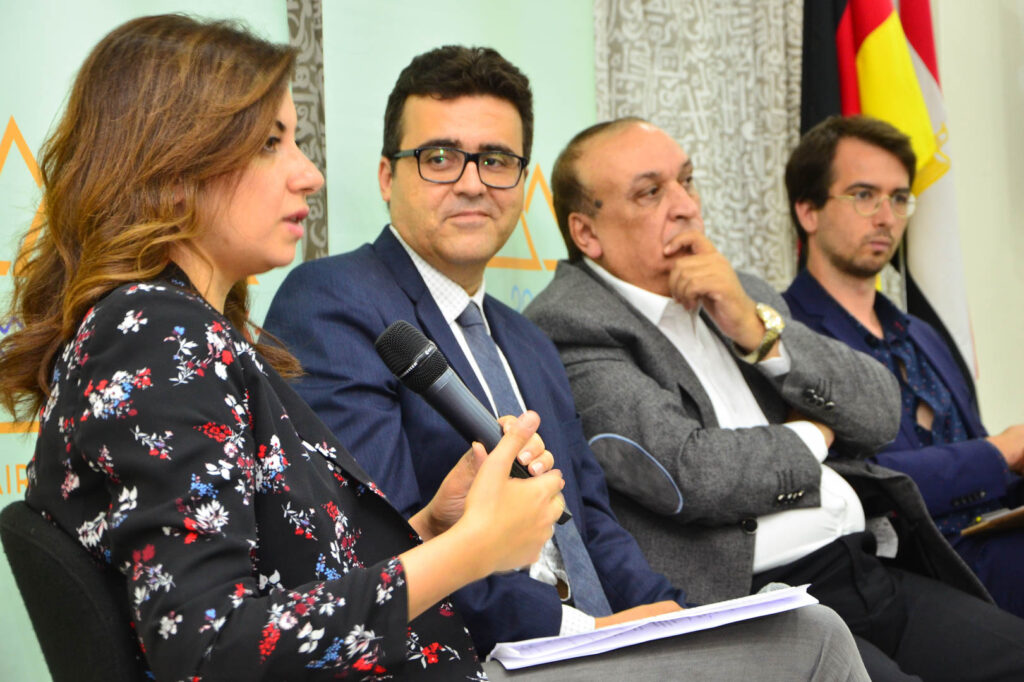
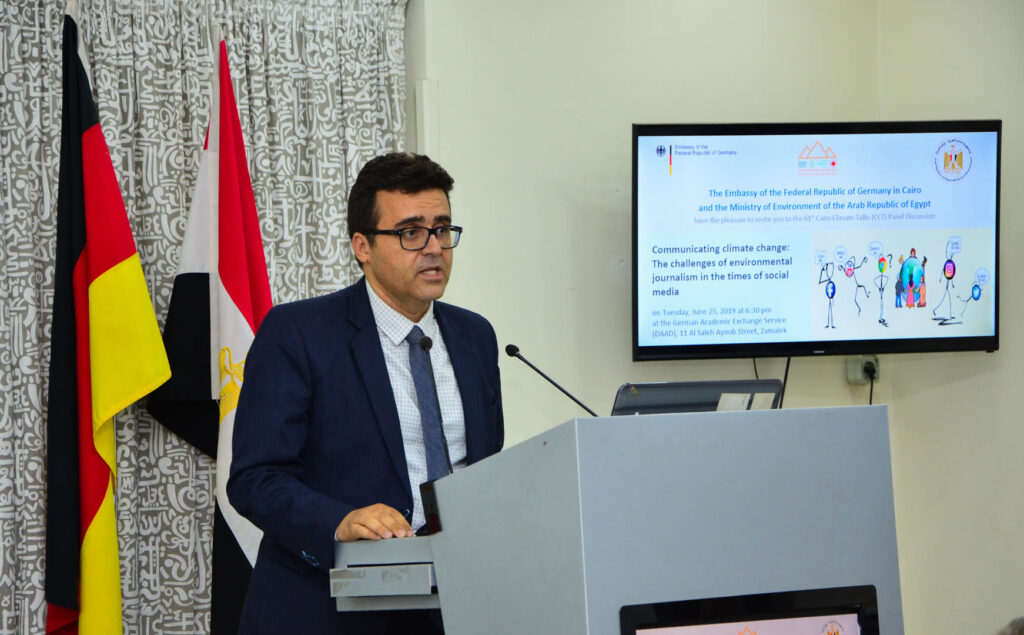
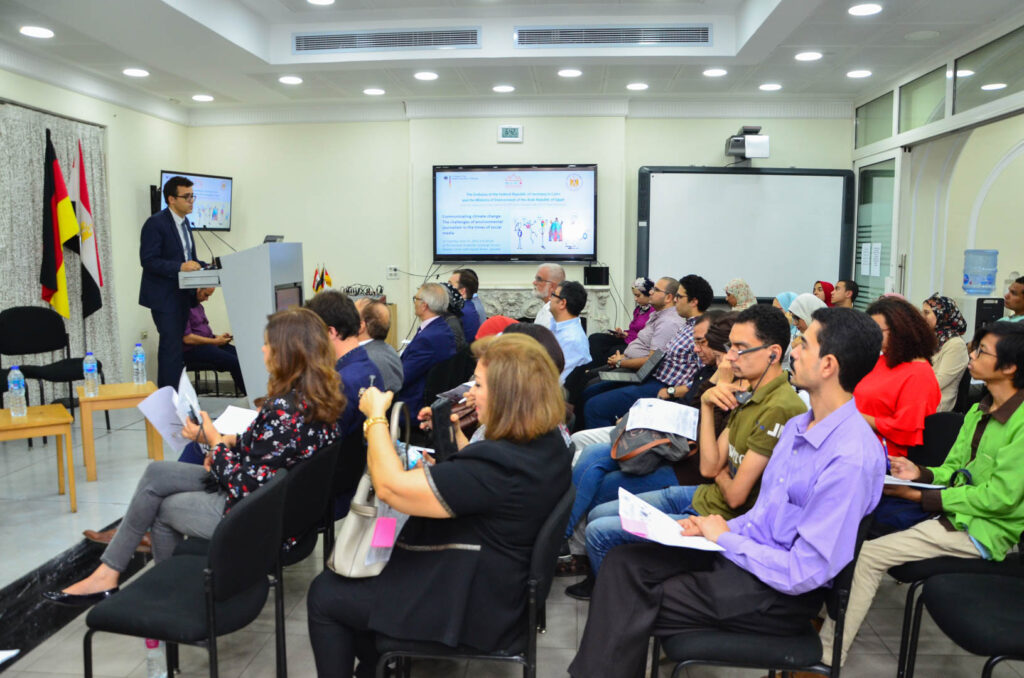
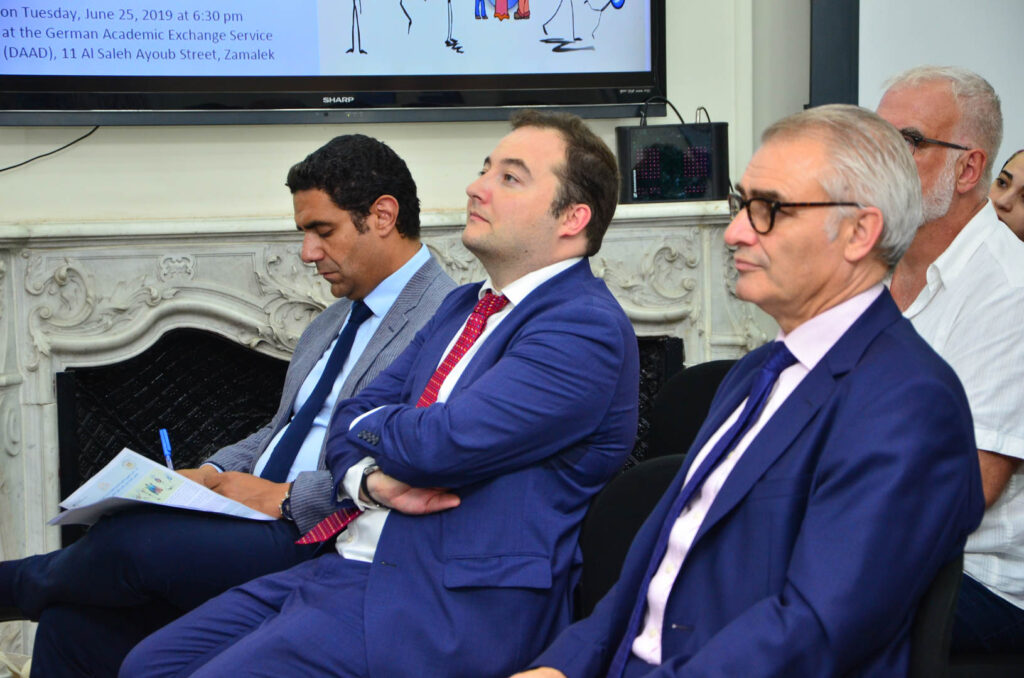
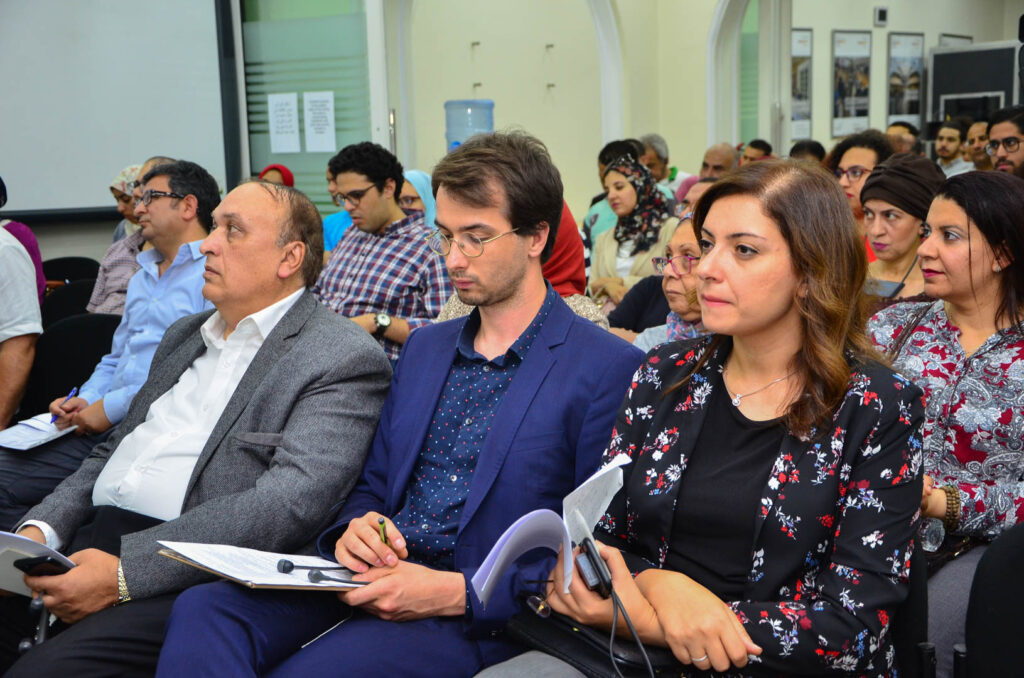
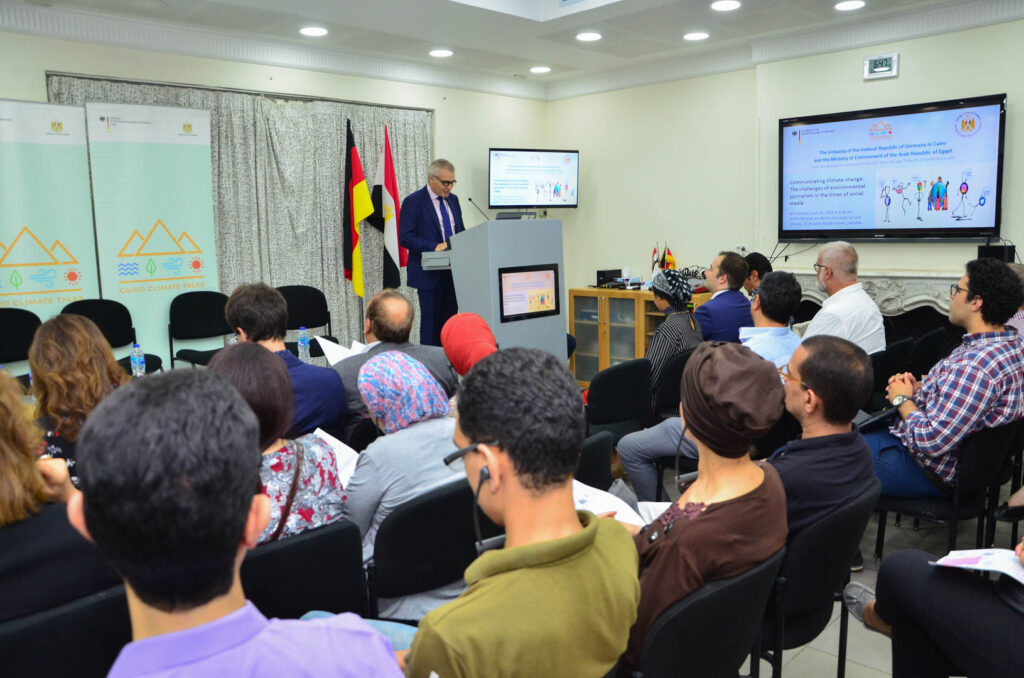
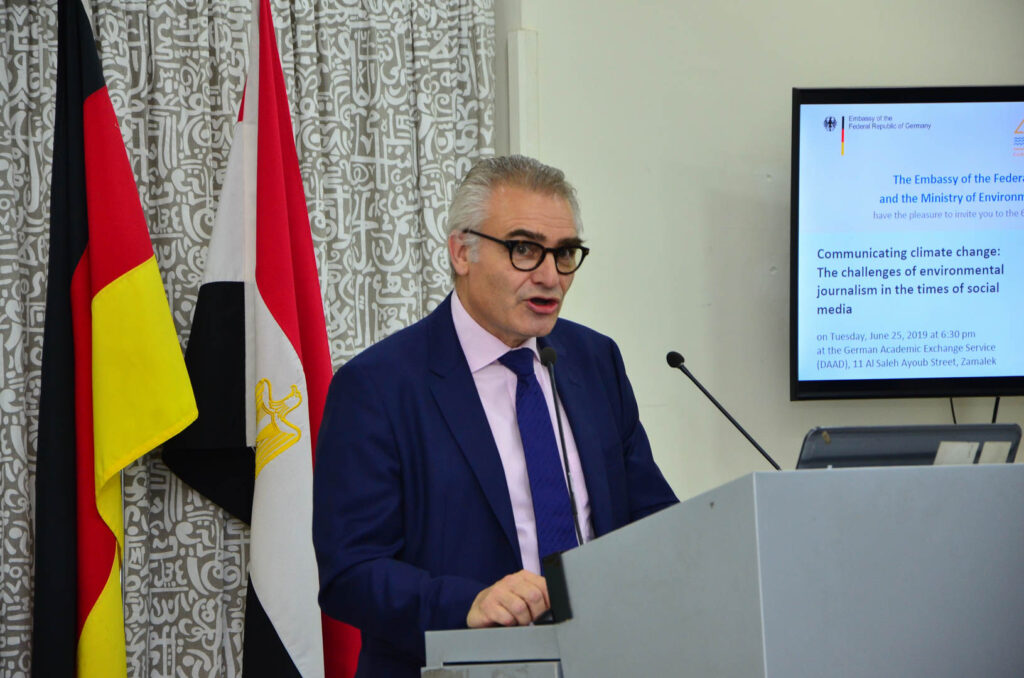
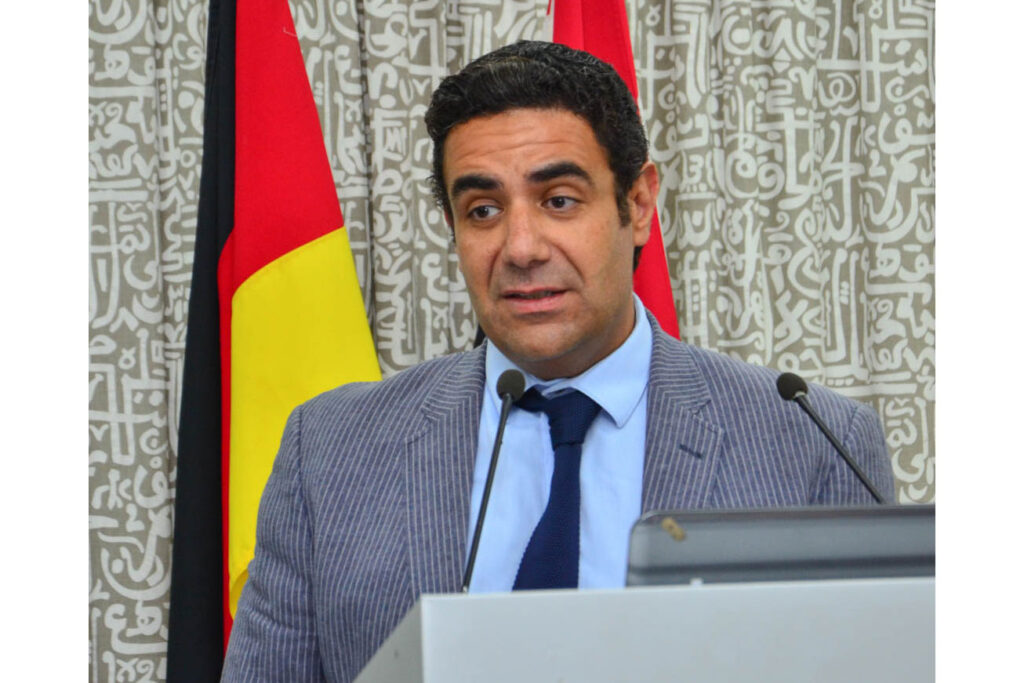
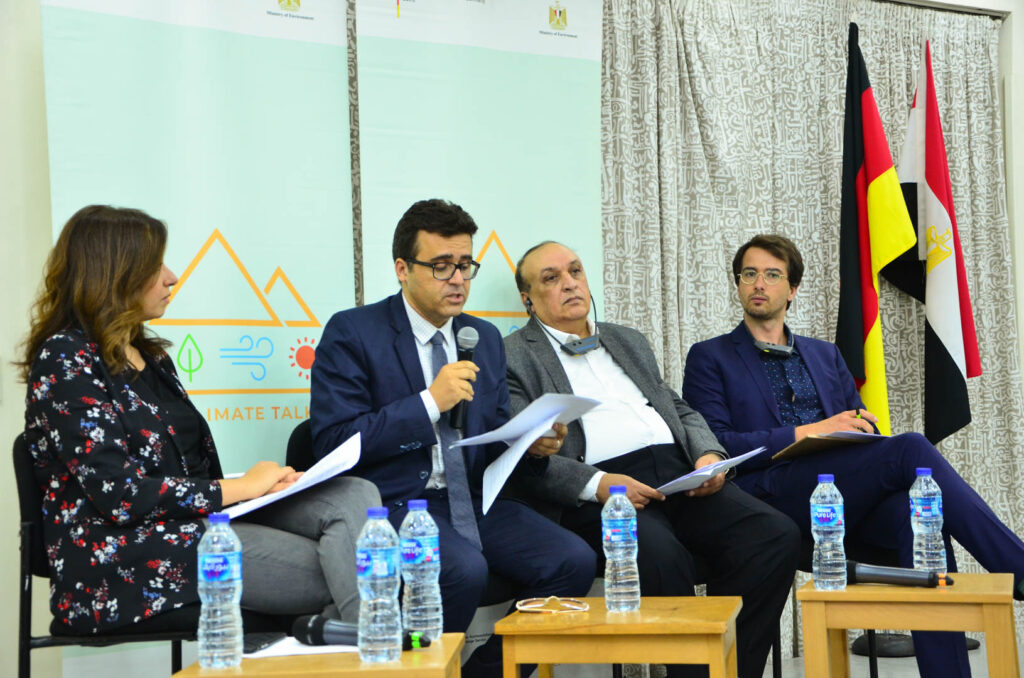
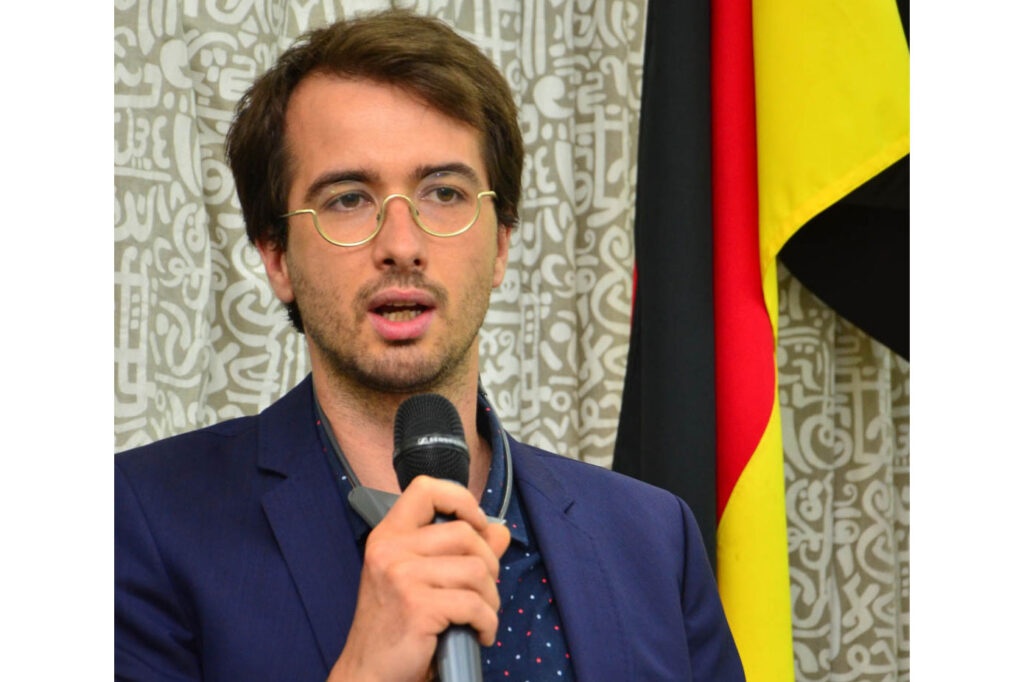
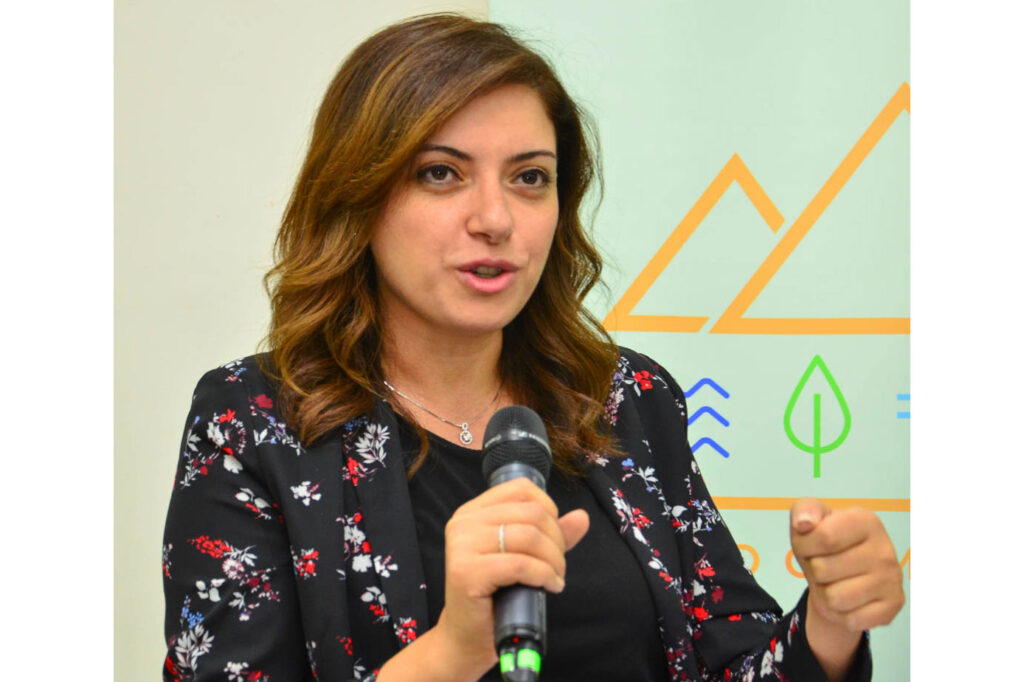
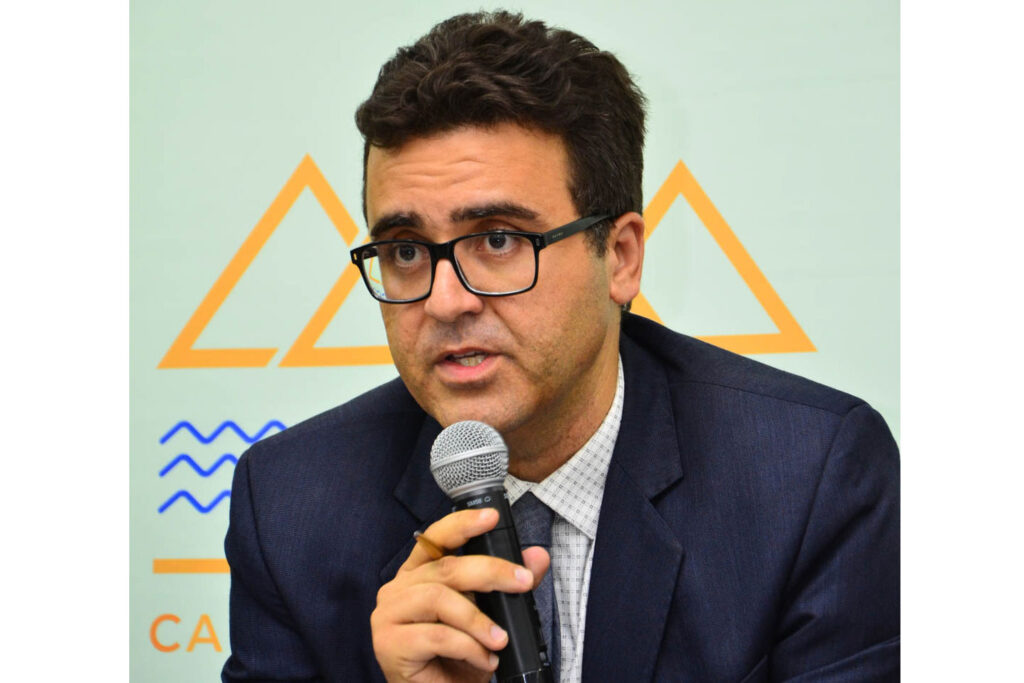
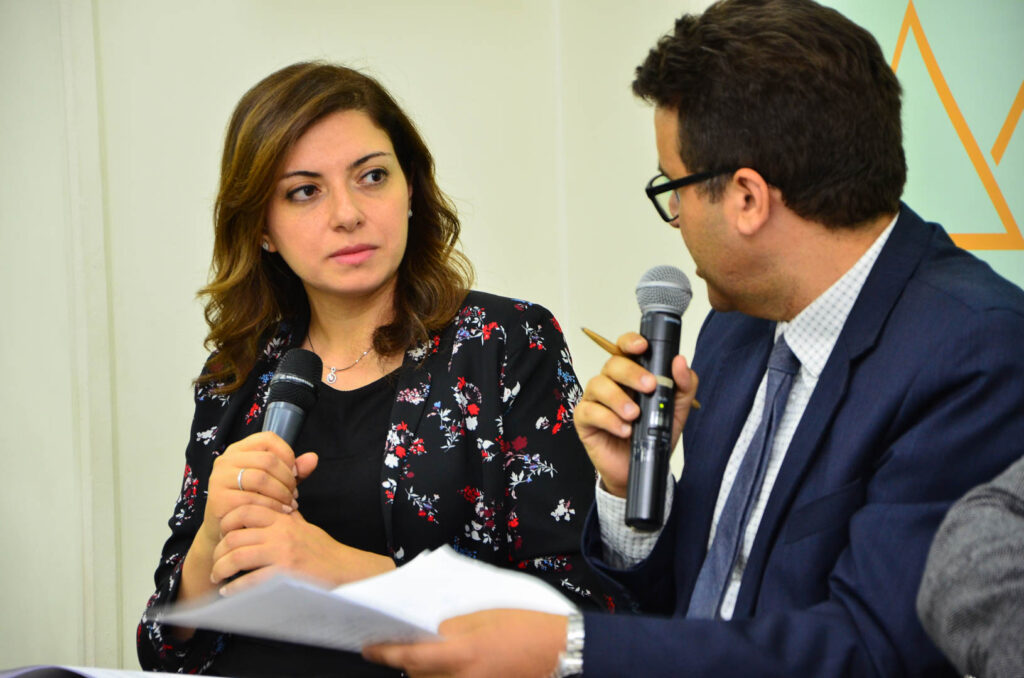
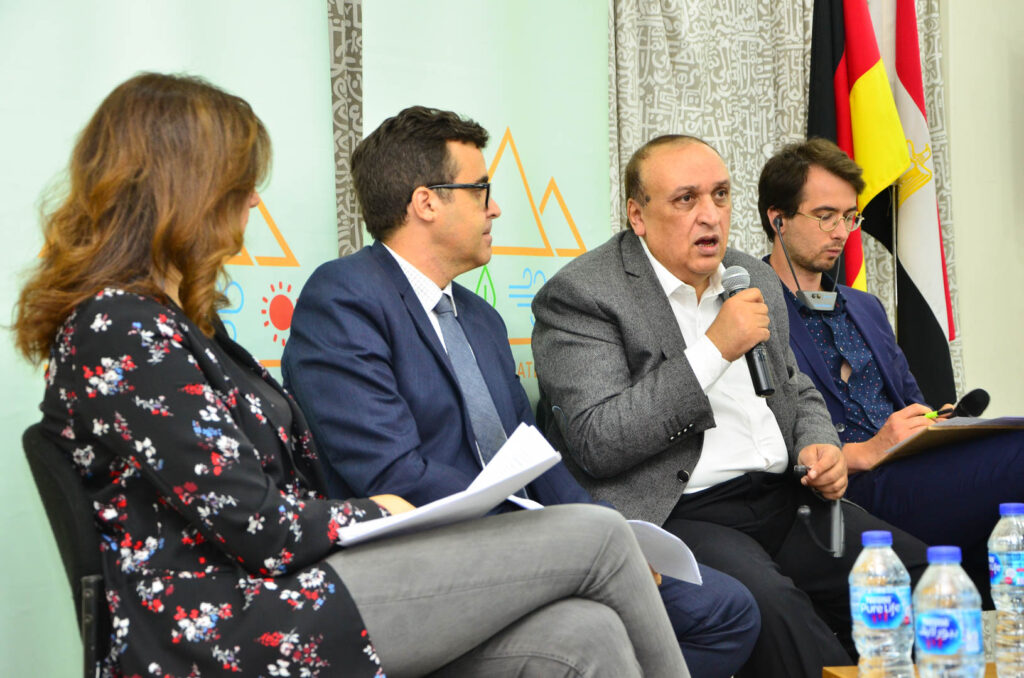
Are you interested? Don’t miss out by registering to our events. We hope to see you there.
